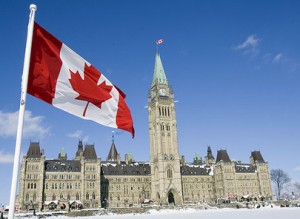Natasha Bulowski/Local Journalism Initiative
Erin O’Toole’s fall from grace within the Conservative Party of Canada was no surprise, but the speed and brutality of his ousting jarred even seasoned political scientists.
Uniting the deeply divided party is no easy task, but O’Toole ushered in his own demise by neglecting his backbenchers and pushing the party towards the centre, says Richard Johnston, a professor of political science at the University of British Columbia.
On Wednesday, O’Toole lost a caucus vote to remain party leader after roughly one-third of his MPs signed a notice to trigger the leadership review.
Of the 118 MPs who took part in the secret ballot, 73 voted to replace O’Toole while 45 endorsed him, according to Ontario MP and national caucus chair Scott Reid, who did not cast a ballot.
O’Toole’s ousting was no surprise to Johnston.
“He was bleeding support,” said Johnston. “This is the most brutal ousting and the most sudden, ever.”
Johnston said the party’s situation was “pretty dire all along,” but the catalyst seemed to come when he fast-tracked a government bill to ban conversion therapy in Canada and “silenced a significant number of his backbenchers.”
One such backbencher is Alberta MP Garnett Genuis, who recently confirmed he signed the letter seeking the early leadership review.
Because O’Toole ran for leadership from the right and then led closer to the centre, he betrayed the trust of many in his party, said Johnston. Arguably, a more inclusive approach is important to win elections, he says, but there is a “delicate balance” to be struck, and O’Toole missed the mark.
“The dismay amongst people on the right of the party and amongst people of rural areas — the West, as well — is that they don’t even feel heard. Not just disagreed with, they don’t get to speak,” said Johnston. “The leader of the party has to allow such people to speak, though in a somewhat controlled way.”
Whoever the party’s next leader is “has to figure out how to speak to the backbenches in a way that is serious and realistic, without being condescending or dismissive,” he said.
BC MP Mel Arnold released a statement on the end to O’Toole’s leadership, thanking him for his service and cautioning that: “Discussions and critiques of our party’s leadership have recently become very public, causing distraction from the important work that my Conservative colleagues and I must be focused on.”
Because it was a secret ballot, BC MP Brad Vis declined to say how he voted in a statement thanking O’Toole for his leadership over the past 18 months.
O’Toole also hurt his image within the party when he pledged carbon pricing would be scrapped during the leadership race, only to end up embracing it down the line — despite the fact that some of his MPs, including many in Western Canada, fought for years against the Liberal government’s carbon-pricing mechanism, which the Conservatives called a “carbon tax.”
In the fall, he also amended party policy to say that, if elected, a Conservative government would keep the Liberal gun restrictions and complete a review of those rules, a move which also caused some friction.
— Source: Canada’s National Observer w ith files from The Canadian Press






